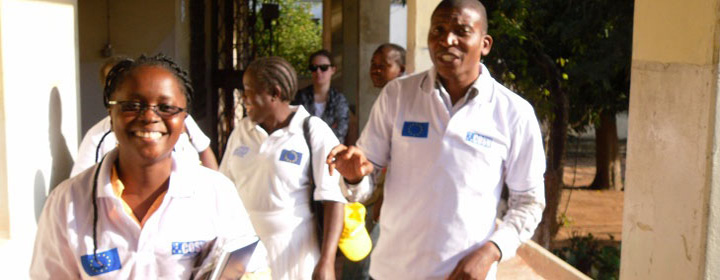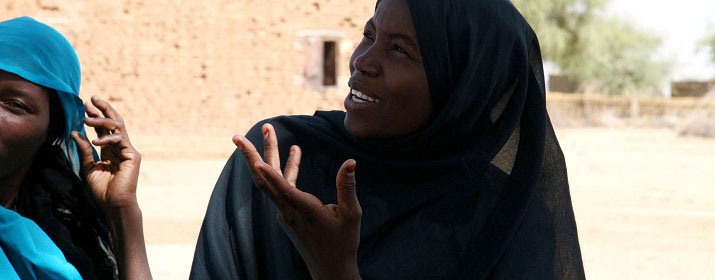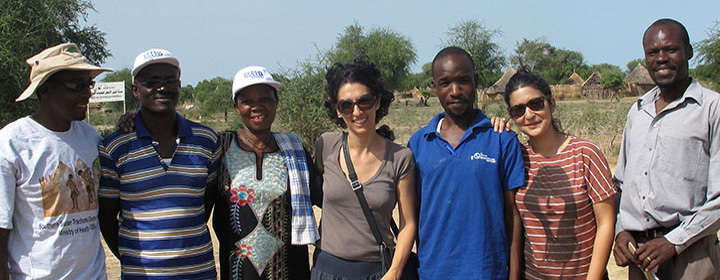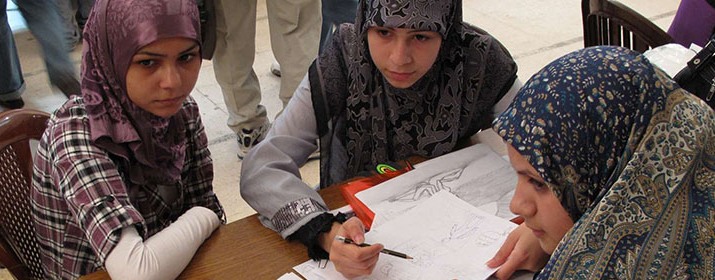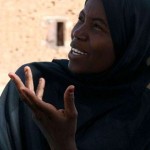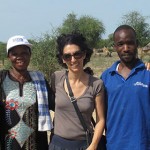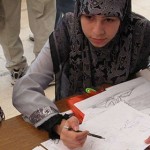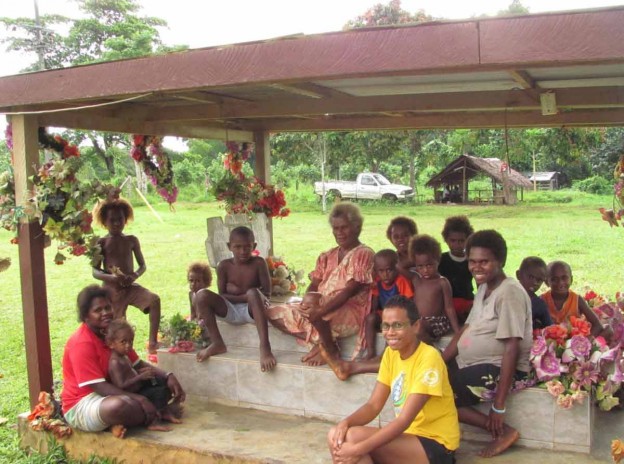If you come to Vanuatu you’d likely arrive in the port or airport surrounding the capital Port Vila, on the island of Efate. If you are to be one of the few who doesn’t it’s likely you’d be greeted by the largest island in the archipelago – Espiritu Santo – a place of very little urbanisation despite being no stranger to visitors after becoming one of the United States’ major army bases during World War II.
A 30 minute drive north of here on a dirt road from Santo’s main town, Luganville, a local group of people (headed by Delly Roy) that focus on music, media production, cultural and youth projects in Santo are working with local communities and villages in Mon Exil, Fanafo, Port Orly, Vilvil, Matevulu and Rotar to build a camp for 60 musicians (from Vanuatu and Mozambique) to take place in October this year. The camp – Singaot Miusik Kamp (SMK) is part of a larger project, ‘Music Bridges’, and is a collaboration between communities, countries and continents. The overall objective of the camp is to favour the strengthening of the music industry as a tool of poverty reduction in the two countries by reinforcing the creation and the production of music goods and services in Mozambique and Vanuatu. It’s also a chance for these communities and musicians to gain first hand event management, logistical, and communication skills, while being part of a unique cross cultural music exchange.
The initiative is a partnership between COSV, a Pacific music organisation in Vanuatu (Further Arts), and an association in Southern Africa’s Mozambique (Music Crossroads), and funded by the European Union’s Africa Caribbean Pacific (ACP) Cultures II + ACP Films II Grant. These partners are working towards a shared path involving local, regional and international music stakeholders to reinforce the music industry and create the necessary conditions for young local musicians to generate income from their music production whilst reinforcing traditional cultural or ‘kastom’ values and how these elements can be brought into the global music industry without compromising the traditional culture. In Vanuatu and Mozambique music stakeholders face severe difficulties in affirming the sector as a source of economic gain as it is usually not backed up by a strong local music fabric and the geographical distance of these countries is perceived as an hindrance to enter international networks. Local artists don’t have the chance to move from their own country to attend music festivals and camps where they could improve their techniques and get in contact with international music circuits to promote their music. SMK is aiming to bridge that gap at a community level.
Planning began in October 2012, where traditional land owner and other landholders engaged to undertake works and supply materials for building and clearing the two sites – one strictly for artists and one for staff and administration (HQ). Such materials included natangora leaves and wood for construction, as well as the planting of taro, banana, island kabis (cabbage) and so on for local food supplies. Not only does this provide income for the villages – through labour and food production – it also empowers these communities to maintain and pass on their own skills. Many villages are losing traditional practices, values and cultural activities (known as ‘kastom’) so the camp gives weight to providing a platform for the younger generation to learn traditional knowledge and wisdom, as well as being able to promote it to an international audience.
In April the first kastom ceremony was performed to clear the road for work to begin and for the site to be used for these purposes. The traditional land owner and all landholders were presented with kava, yam and woven mats as an offering to accept this endeavour on behalf of the villages and subsequent communities. The depth of community engagement is difficult to convey – in the past many of these communities have been disenfranchised by government driven projects that have resulted in exploitation of their kastom practices and their land. At the ceremony the representatives responded with enthusiasm and with their full support – a sign of the great lengths that the local team have gone to in ensuring transparency and trust in the SMK project with the community.
Inspired by the Ethno Music Festival which regularly happens in several countries in Europe – the camp seeks to emulate the same philosophy of the promotion and the sharing of ethnicity through a music exchange in an ACP context. During the residential camp, specific attention will be given to music events organisation, production and promotion; copyright and distribution; licenses and intellectual property, and will be complimented by workshops following the camp in Port Vila. In the Pacific Islands context, it has been registered that intellectual piracy is destroying the local and regional industries, and in Mozambique there is a lack of knowledge within the musicians of Copyright Law and the different ways to release their products to maintain their rights and promote their music.
All of this will feed in to both this year’s Lukaotem Gud Santo Festival (October 11th and 12th) and Fest’Napuan in Port Vila (October 16-20th) – camp participants will open both festivals with original songs composed during the exchange. Make sure you come.
Words from Further Arts – Further Arts is a charitable association based in Port Vila that works towards empowering ni-Vanuatu to develop sustainable social and commercial enterprises in the industries of creative arts, agriculture and communications for the Pacific Rim.
Email: info@furtherarts.org
Website: www.furtherarts.org

